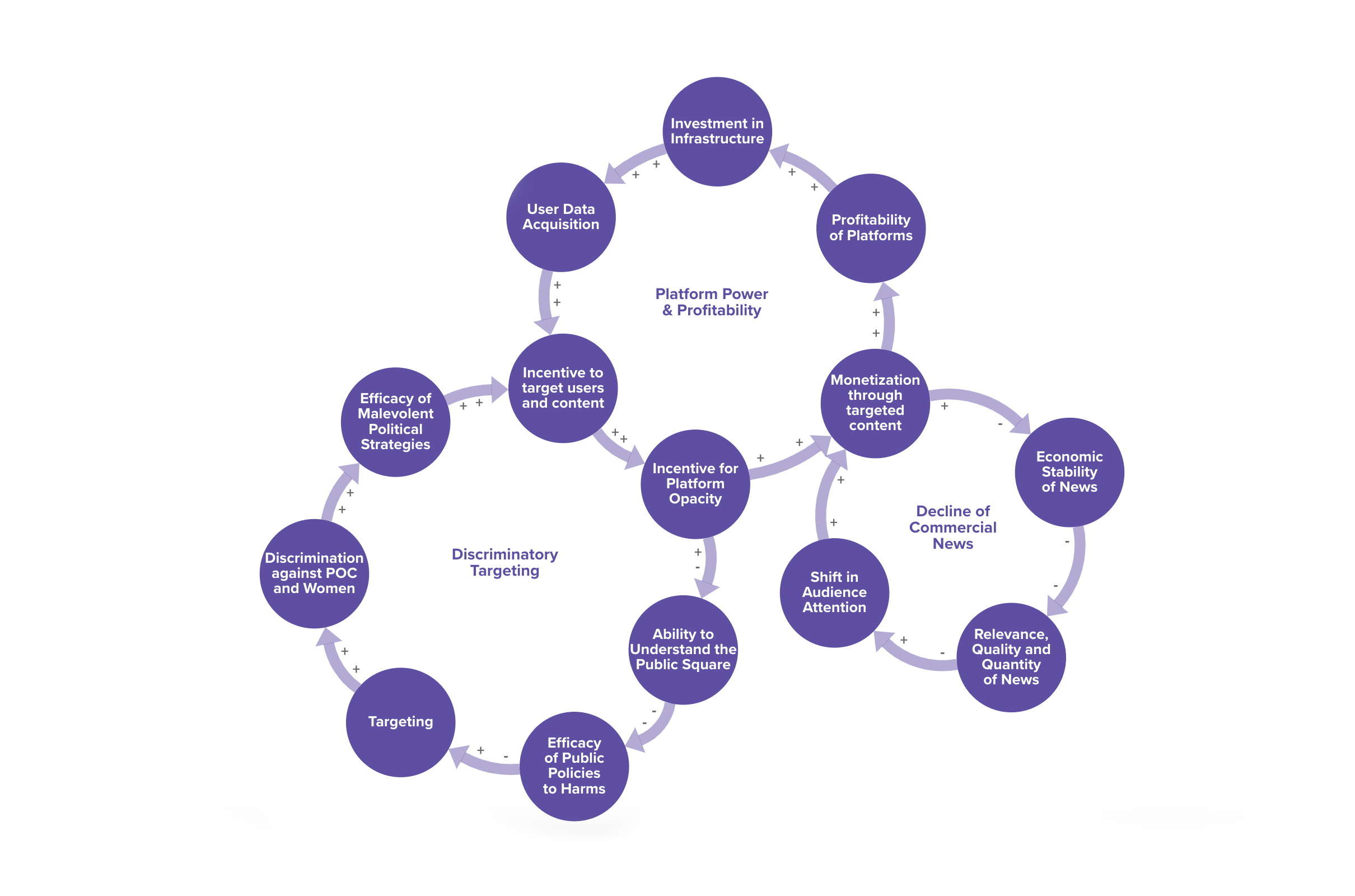Our democracy is a complex political system made of an intricate web of institutions, interest groups, individual leaders, and citizens that are all connected in countless ways. Every attempt to influence and improve some aspect of this complex system produces a ripple of other reactions. To identify the root causes of problems we want to address, find intervention points, and design strategies to affect positive change, we use a methodology called systems mapping. We create systems maps in collaboration with broad and inclusive sets of stakeholders, and use them to design and then assess our grantmaking strategies. They are intended to provide a shared language, creating new opportunities for dialogue, negotiation, and ideas that can improve the health of our democracy.
This systems map describes how digital tools and technologies have transformed our public square in recent years for better and for worse. The flow of news, information and civic discourse is now largely governed by five major companies: Facebook, Twitter, Google, Microsoft, and Apple. Following numerous high-profile scandals, the public has grown concerned about issues of discrimination, mis/disinformation, online hate and harassment, lack of transparency, voter suppression, and foreign interference in our elections through the platforms. The platforms’ lackluster response to these crises suggests that we need to build a strong movement to force the platforms to become accountable not just to their shareholders, but to the public.
The map consists of three interlocking loops.
- Platform Power & Profitability describes how the platforms have come to dominate digital communications at the expense of the public square’s overall health and transparency.
- Discriminatory Targeting lays out the ways in which platform tools have been used to weaken our democracy, spread hateful content and disinformation, and have exacerbated longstanding racial, economic, and gender inequalities.
- The Decline of Commercial News shows why and how news publishers have been unable to compete with platforms for attention and profits in the digital age, and what the loss of journalism means for the public square.
